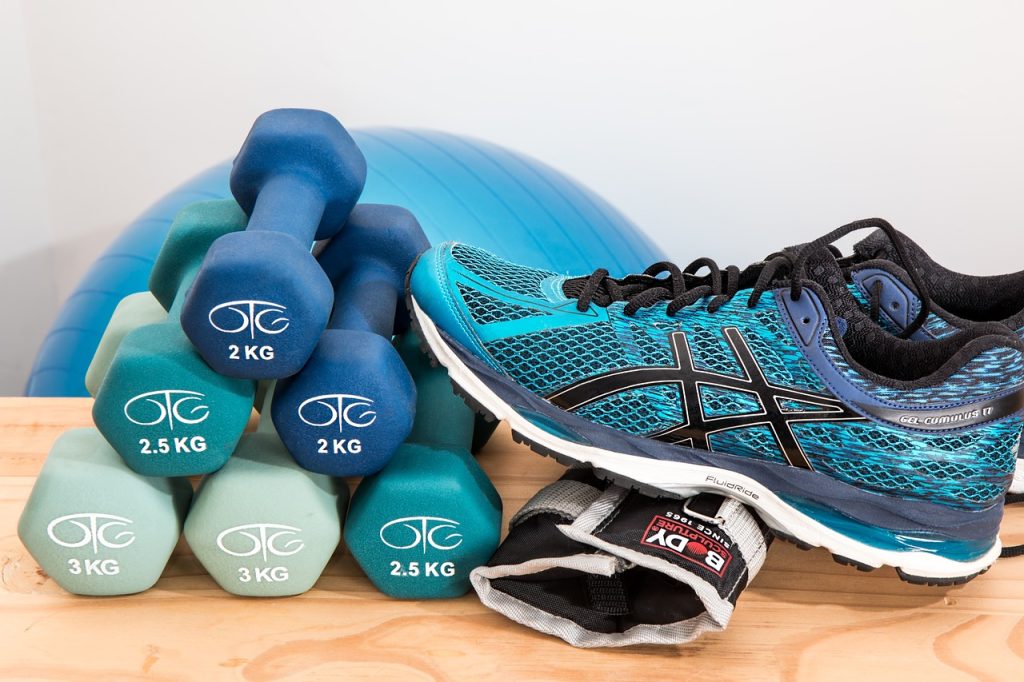Sweating on a treadmill or lifting weights in a gym might be fun for the first few days, but who can stay motivated afterwards with the same old boring routine? Not to mention those days when it’s raining and gray outside, or when you’re just tired, then your fitness training is the first thing to drop off your ‘to do’ list.
So what’s the key to staying eager about exercising? Follow these simple steps to stick to your program.
Start Safely
Also, make sure you get proper instruction on various sports and techniques. Schedule an appointment with a personal trainer at the local gym, or try training with an experienced workout partner to minimize the risk of injuries.
Choose a Sport or Training Method You Enjoy
Thirty minutes on a treadmill is pure torture if you’d rather be hiking outdoors or taking a spinning class. It’s crucial to make exercise something you enjoy, otherwise, you’ll dread making it a part of your life. If you love individual sports like skiing or running, do those instead of group classes.
Set Realistic Goals
If you’re unsure about getting fit, you’ll never stick to a workout routine. Having clear and achievable goals, such as losing a kilo or ten before the vacation, will motivate you to hit the gym or go for that afternoon walk when you’d rather toss your sneakers away.
One way to motivate yourself to commit to exercise is by signing a contract with yourself outlining your goals.
Reward Yourself
There’s no better way to stay motivated to get fit than immediate rewards. So when you hit halfway to your goal, treat yourself to a nice dinner or that new bag you’ve been eyeing. Share reaching your goal with family and friends because seeing your progress will motivate you to keep going toward your ultimate goal.
One way to reward yourself and your muscles after a workout is with a protein shake.
Be Consistent with Your Training Times
Choose to exercise at the time of day when you feel most energetic. If you’re a morning person, work out when you wake up. Sticking to a consistent training schedule will allow your body to adapt, so you’re most efficient—and least exhausted—at that time of day. Research has been done on the effectiveness of morning or evening workouts, and it’s highly individual.
Exercise When Possible
Did you know that six five-minute workout periods can be as beneficial as one thirty-minute session? That means it’s okay if you can’t do your workout all at once; split your workout throughout the day. For instance, get off the bus a stop earlier, walk to work or the grocery store, take the stairs instead of the elevator, or stroll through the park during your lunch break.
Take It Day by Day
The more gradually you start a workout plan, the more likely you are to achieve your goals. Your body will adapt better if you start slowly, and you’ll get stronger without injuring yourself. Avoid introducing too many changes to your lifestyle all at once. For example, if you’re changing your diet, quitting smoking, and starting a full workout plan all at once, that’s too much at once.
Find a Workout Buddy or Group
Schedule two workouts a week with someone. If you have a friend waiting for you to go to the gym or go for a walk, you’re less likely to cancel. Write down your workout appointments and keep them as if they were work commitments.
Vary Your Workouts
It’s good for you to incorporate different elements into your training. If you don’t regularly change up your workouts, your body will only train certain muscles, and you’ll stop seeing results. You can avoid this by including a variety of strength training, flexibility training, and cardio training in your workouts. A weekly workout plan might include swimming, jogging, or walking one day, weight training the next day, yoga, cycling, aerobics, etc.
Take a Day Off!
An exercise obsession is just as bad as not exercising at all because it’s physically and mentally counterproductive. A crucial part of exercise is allowing your muscles to rest and recover so you can achieve the best results. Overdoing it can lead to overtraining and muscle breakdown. If you allow yourself mental rest too, you’re less likely to burn out and much more likely to stick to a long-term exercise plan. Listen to your body, and if you’re not having a great day, take it easy and let your body rest.

